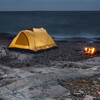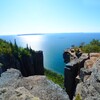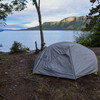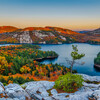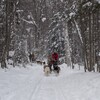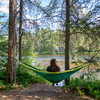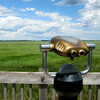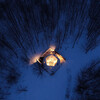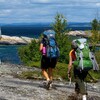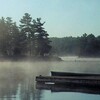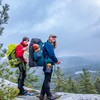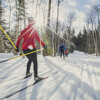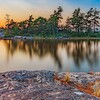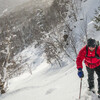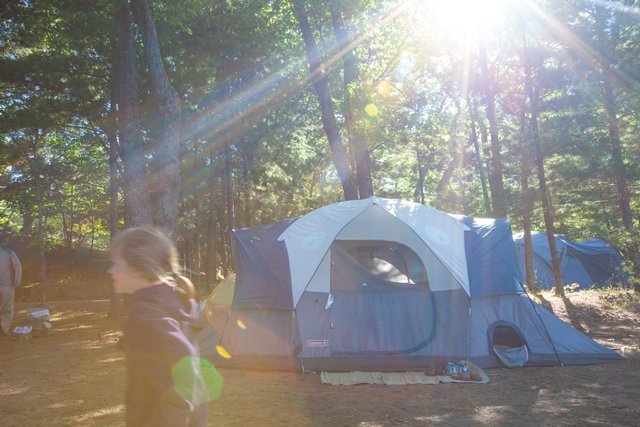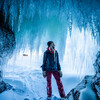
Cleanup Continues at Samuel de Champlain Provincial Park Following Devastating Storm
Campers celebrating the summer solstice last June at Samuel de Champlain Provincial Park experienced a terrifying storm that tore through the Park’s two campgrounds, shearing and flattening thousands of trees, including massive century-old pines, like matchsticks. The extreme weather forced Ontario Parks to close the Park for the remainder of the 2025 season and radically altered its ecosystem.
On June 21, a volatile weather system including electrical storms and strong winds tracked over Northeastern Ontario, wreaking havoc along Highway 17 corridor east of North Bay. The storm hit Samuel de Champlain Provincial Park around 9 p.m. Some campers took shelter in comfort stations as winds knocked over trees on tents, RVs and cars. Eventually, about 300 campers were evacuated from Samuel de Champlain and the Kiosk campground in Algonquin Provincial Park, south of Highway 17, to the nearby town of Mattawa. Several people were injured but fortunately no one was killed.
In the wake of the event, Ontario Parks staff carefully assessed the damage and went to work clearing the fallen trees and removing destroyed tents and trailers in the Babawasee and Jingwakoki campgrounds. Aerial photos taken by University of Western Ontario researchers investigating the possibility of storm-related tornadoes showed a ravaged landscape of flattened trees. They concluded there was no tornado, but clear evidence of powerful microbursts—intense, localized downdraft winds exceeding 100 km/hr associated with severe thunderstorms. In an interview with CBC News, Ontario Parks Algonquin Zone Manager Cameron Hockey compared the storm’s visual aftermath to “a clear-cut forestry operation.”
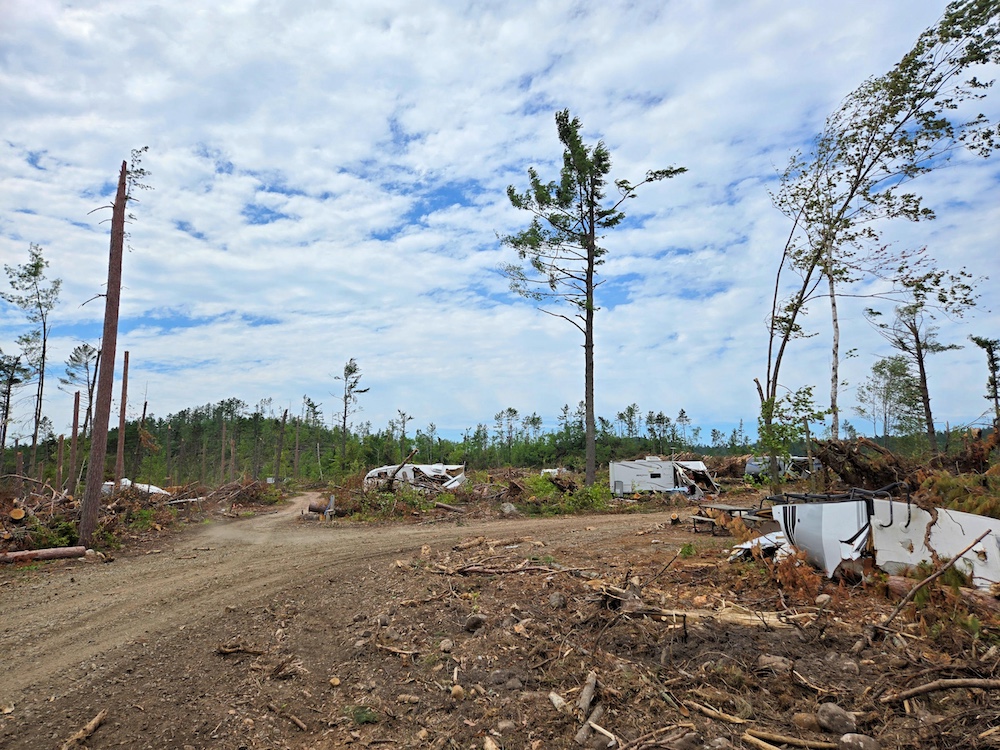
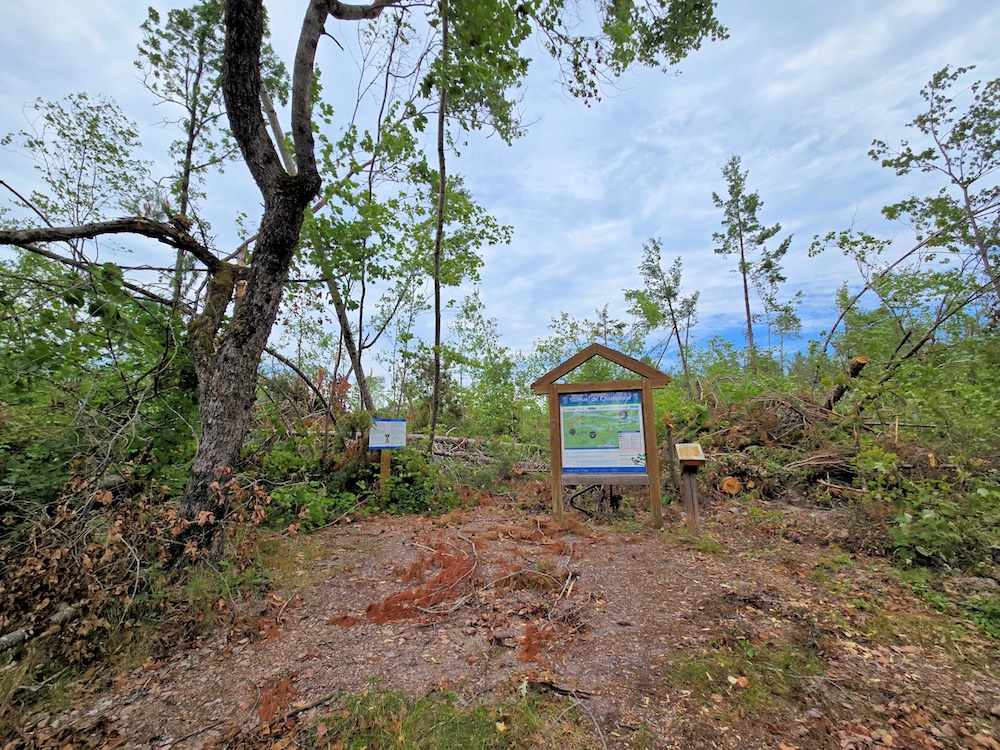
“The storm downed power lines, damaged transformers and roads, and uprooted trees,” added Samuel de Champlain Provincial Park Superintendent Warren Verina, in September. “It has taken a substantial effort up to now to regain some power and begin clearing campgrounds.”
Over the summer, Ontario Parks staff worked closely with the Algonquin Forestry Authority to clean up and salvage downed trees, Verina said. “Ontario Parks is taking a strategic approach as to what’s being removed, with minimal impact to infrastructure and Park values, while making safety our number one priority.”
Popular outdoor educator and blogger Bill Steer took shelter from the storm in one of the cabins at the Canadian Ecology Centre, a nonprofit environmental education facility located within Samuel de Champlain Provincial Park boundaries. In a story on Sudbury.com, Steer recalled tucking himself on the floor in the fetal position, with his hands around his head.
“I could hear that high-pitched rumbling sound of a freight train approaching,” wrote Steer, the Canadian Ecology Centre manager. “The cabin seemed to shake or lift. A hefty tree branch came through the steel roof. Massive enough to impale. Thirty seconds later, the bashing and pounding of 150- to 200-year-old trees bouncing off the roof stopped. The storm cloud’s energy waned.”
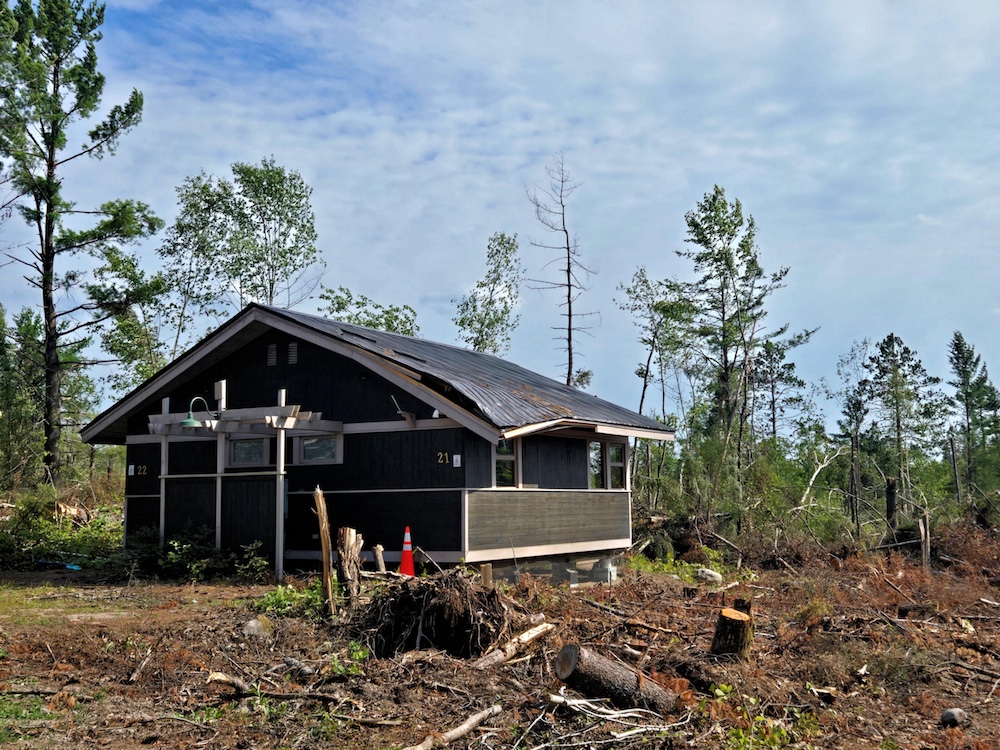
Shortly after, Steer posted a shocking video of the storm damage on YouTube. Later, he reflected on how the event will inevitably reshape Samuel de Champlain Provincial Park.
“These types of storm events, although dramatic in a built infrastructure environment, do happen naturally in ecosystems,” added Verina. “We are continuing to make wildlife observations including moose, deer and turtles.
“Ontario Parks will continue to explore opportunities for ecological restoration, including reforestation, in our recovery planning,” Verina continued. “An example of this work is our road resurfacing project which is nearing completion. This new design will include an eco-passage, turtle fencing and escape ramps, which will mitigate road mortalities and support population dispersal.”
Both the Canadian Ecology Centre and Samuel de Champlain Provincial Park remain closed to the public. Whenever they reopen, visitors can look forward to witnessing the rebirth of resilient natural and human ecosystems.
“Ontario Parks looks forward to welcoming people back when it’s safe to do so,” said Verina. “It’s too early to determine when the Park will open again as restoration and repair work continues.”
Header image: courtesy of Northern Tornadoes Project
In-article images: Josie Dinsmore Photography
Recommended Articles
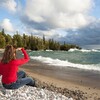
Attention Detroit
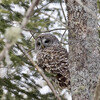
Where to See Ontario's Coolest Wildlife
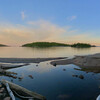
Explore Ontario’s Hidden Gems
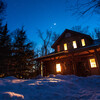
Ontario’s Most Stunning Winter Resorts

Winter Wonderland Fun

Top of the Giant Trail
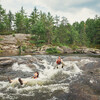
Incredible Swimming in Ontario
9 of the Most Beautiful Fall Destinations
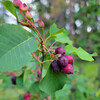
Go Foraging in Ontario
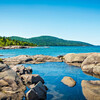
Insider’s Guide to Neys

Tips for 2026 Camping Reservations

All-Season Ontario Camping: 10 Incredible Yurts
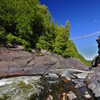
Ontario’s National Parks

Want to go snowshoeing?
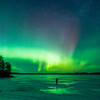
Best Northern Lights Destinations
Tom Thomson Self-Guided Tour

Get 2 for 1 coupon
Can't-Miss Skating Trails & Outdoor Rinks
Canoeing in Toronto

